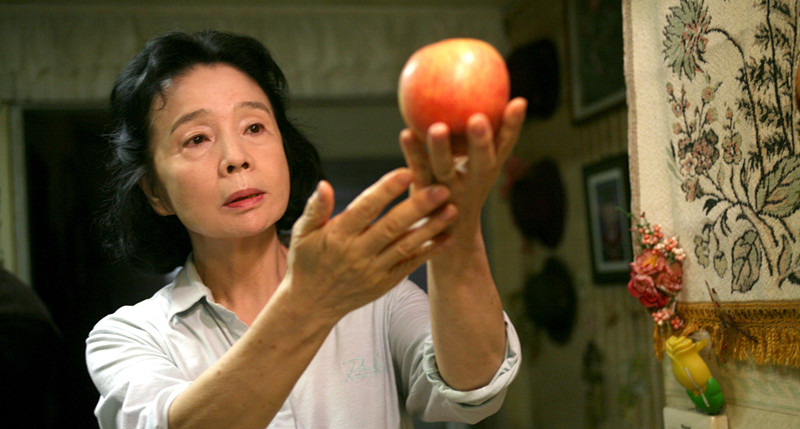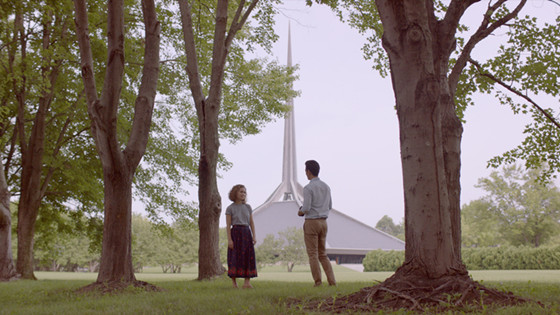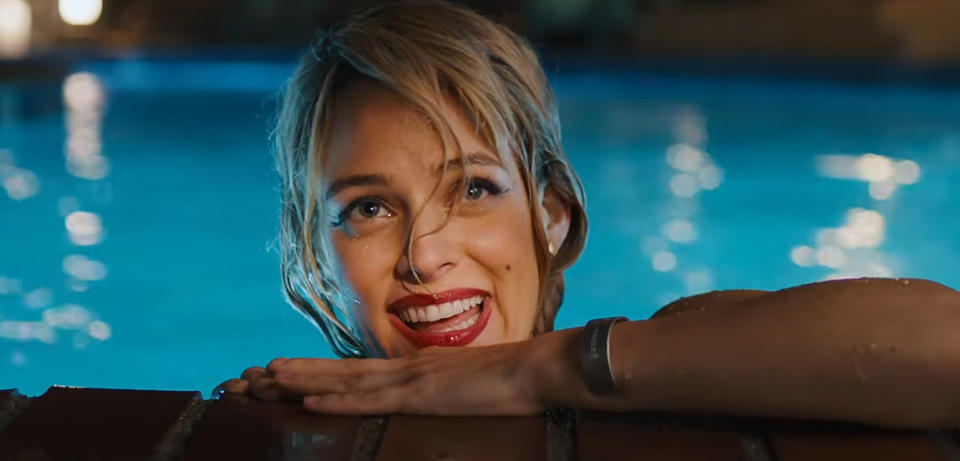6. A Hidden Life (Terrence Malick, 2019)

Few active filmmakers, if any at all, spark such rarefied passions and polarized takes than Terrence Malick. In fact, the Texas native could have just as easily been tapped for the 2011 autobiographical family drama “The Tree of Life”, an oft-misunderstood masterpiece that has only started to be appropriately appreciated some 12 years later after premiering at Cannes.
But in a moment in time when great war films felt in such short supply — at least those that had any higher ambitions other than simply hoarding Oscar statuettes — “A Hidden Life” was a godsend. Charting the heroic endeavors of a peaceful Austrian farmer who refuses to serve in Hitler’s army at the height of the Nazi regime, Malick, through his signature poetic style and unique visual techniques, peels back the placid surface of 20th century Europe, asking to us to consider the heavy toll of war, resistance, free will, and faith in ways that evade easy platitudes but furiously digs its way into your consciousness.
7. Poetry (Lee Chang-dong, 2010)

Fellow countrymen Bong Joon-ho and Park Chan-wook may have made more headlines in the past decade, in no small part for their respective roles in helping usher in a new wave of South Korean cinema, but allow one to submit that Lee Chang-dong has quietly built one of the finest film catalogs of any working director today.
Prior to treating us with his cryptic yet endlessly beguiling Murakami adaptation “Burning” in 2018, the former novelist reached for the sublime with this soul-wrenching, compassionate character study, which follows a 60-year-old grandmother as she grapples with life’s biggest questions after being diagnosed with Alzheimer’s.
Told with fine-tuned simplicity and avoiding the common pitfalls of the set-up, “Poetry” is a tender meditation on life, death and art that leaves an unforgettable mixture of warmth and melancholy in its wake. Though subtle and reserved, Yoon Jeong-hee’s raw nerve of a performance in the lead role is simply unforgettable — an unheralded tour-de-force that will linger with you for long after the credits roll.
8. Leviathan (2014)

Despite heaping praise all throughout the 2014 festival circuit, winning the Best Screenplay award at the Cannes Film Festival and the Golden Globes and nabbing a Best Foreign Language nomination at the Academy Awards, it’s rather unfortunate to see how criminally underrated “Leviathan” still remains to this day among general moviegoers.
A scorching, no-holds-barred exposé on the corrupt powers-that-be — and the devastating consequences it exacts on ordinary people — Andrey Zvyagintsev’s politically pointed social drama set in contemporary Russia follows the travails of a drunken auto-repairmen and his family, who have no option but to stand up to their corrupt mayor after being threatened to leave the only home they’ve ever known.
“Leviathan” gains in smartly surveying the ambiguities of its dense subject matter, and the lack of interest in the kind of heavy-handed moralizing (that incidentally have become endemic in the past decade) is precisely what makes it stand out. Without even necessarily intending it, given the current gridlock of Russian politics, Andrey Zvyagintsev fashioned one of the timeliest films in recent memory.
9. Columbus (Kogonada, 2014)

With only two feature-length films under his belt, former video essayist-turned-arthouse darling Kogonada has already established himself as a certified master when it comes to revealing deeper emotions driving his characters forward and capturing fleeting moments that nevertheless carry an enormous weight.
In his remarkably-assured 2014 debut, the unlikely connection between the son of a Korean-born architect and a young student in a small Midwestern city serves as the baseline for a gentle yet soul-stirring meditation on intergenerational trauma and pursuing one’s dreams — all perfectly calibrated under the guise of a slice-of-life drama. Kogonada’s naturalistic, dialogue-heavy style has been likened to the likes of Yasujirō Ozu and Richard Linklater.
In a similar vein to their work, “Columbus” takes its time implanting itself in your mind. In hindsight, however, few films in the past decade improved more upon reflection or thrive as strongly in memory as Kogonada’s life-affirming Sundance hit. Viewers who have yet to catch up with his sophomore effort “After Yang” could hardly ask for a better introduction than “Columbus”, the rare kind of movie that feels at once modest but never lacking in ambition.
10. Under the Silver Lake (2018)

Pointless, obnoxious, plodding, and utterly self-indulgent are only a handful of the candid adjectives used to describe David Robert Mitchell’s 2018 neo-noir thriller, in which Andrew Garfield plays a 33-year-old jobless loner-turned-sleuth who embarks on a murky quest to decipher a tangled web of conspiracy involving his elusive neighbor.
Though the film alienated pundits at Cannes before quickly flaming out at the box office, one wonders if those that cold-shouldered the film upon release somewhat missed the point by trying to decode its puzzle-box meaning — taking the story at face value and thus ending up disappointed at the lack of answers it ultimately provides.
Your mileage may (and will) vary, but if nothing else, “Under the Silver Lake” is best understood (and enjoyed) as a deliberately inscrutable portrait of paranoia and obsession; no more a straitlaced whodunnit than the hard-boiled detective films it openly pays homage to. Those that go into it fairly open-minded and manage to tune into its woozy rhythms might find a new favorite built to withstand multiple viewings.